Accordingly, Prime Minister Pham Minh Chinh, Singaporean Prime Minister Lee Hsien Loong and UN Secretary-General Antonio Guterres discussed the world situation, major trends in peace, cooperation and development; and recent developments in the region. The three leaders shared their views that the world economy is facing many difficulties; strategic competition between major powers is complicated; regional hotspots, ethnic and religious issues, populism, etc. pose many challenges to maintaining peace, stability and development.
Prime Minister Pham Minh Chinh affirmed that Vietnam will continue to promote multilateral cooperation and international solidarity, contributing to peace, security and development issues in the region and the world .
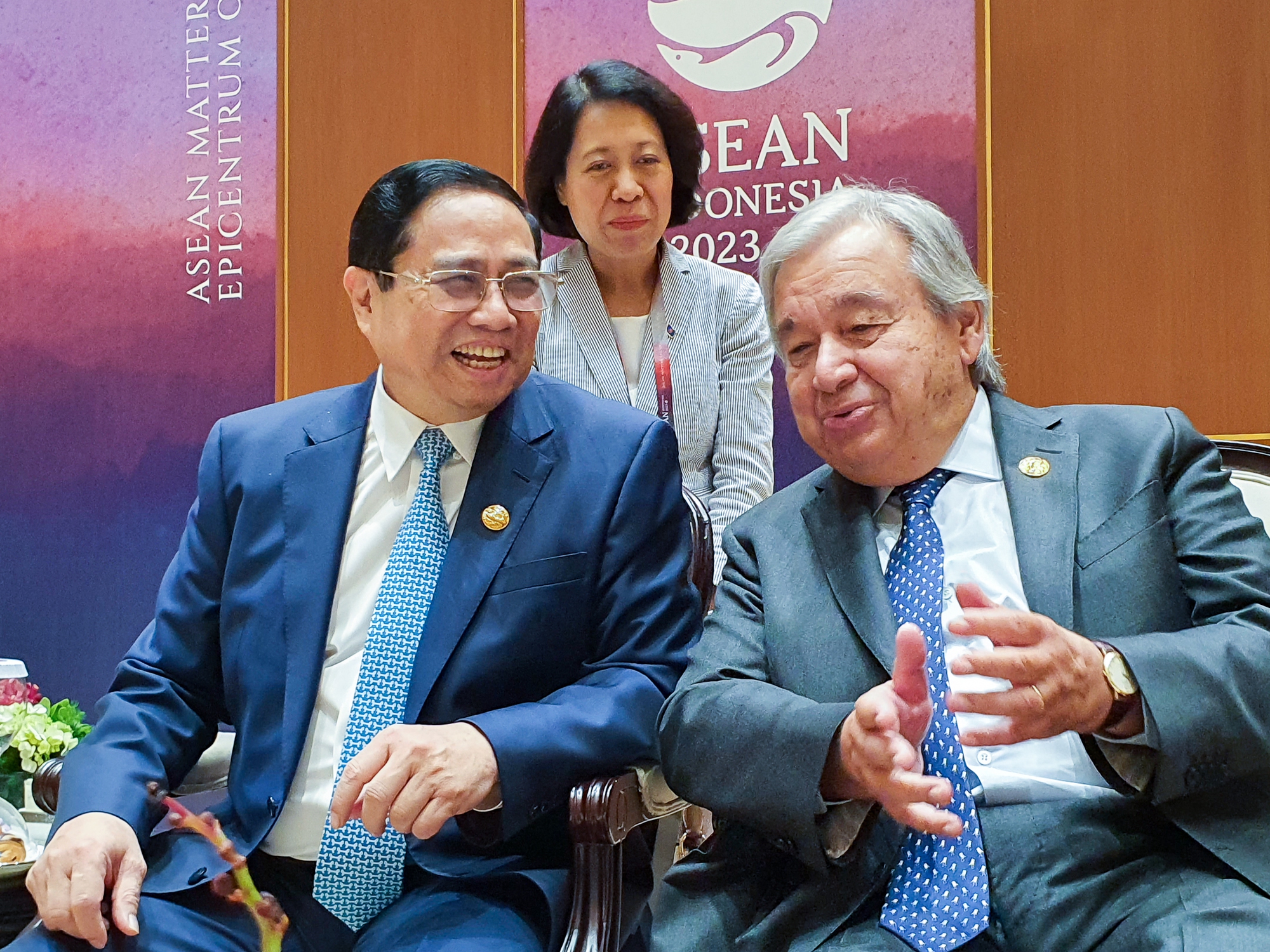
Prime Minister Pham Minh Chinh with United Nations Secretary-General Antonio Guterres.
Encouraging large Indian corporations to increase investment in Vietnam
At the meeting between Prime Minister Pham Minh Chinh and Indian Prime Minister Narendra Modi, the two Prime Ministers reaffirmed the traditional partnership, close friendship and closeness between the two countries and shared similar strategic interests; highly appreciated the positive developments, increasing depth and effectiveness of the Vietnam-India relationship.
The two Prime Ministers agreed that, on the basis of long-standing traditional relations and high political trust, the two countries need to increase delegation exchanges and high-level contacts, and assigned the two countries' Foreign Ministries to actively coordinate and arrange high-level visits in the coming time.
At the same time, they will promote cooperation in various fields, especially new ones such as digital transformation, energy transformation, green and sustainable economic development, bringing mutual benefits to the people of the two countries. The two leaders also agreed to strengthen security and defense cooperation, a pillar of the Comprehensive Strategic Partnership between the two countries.
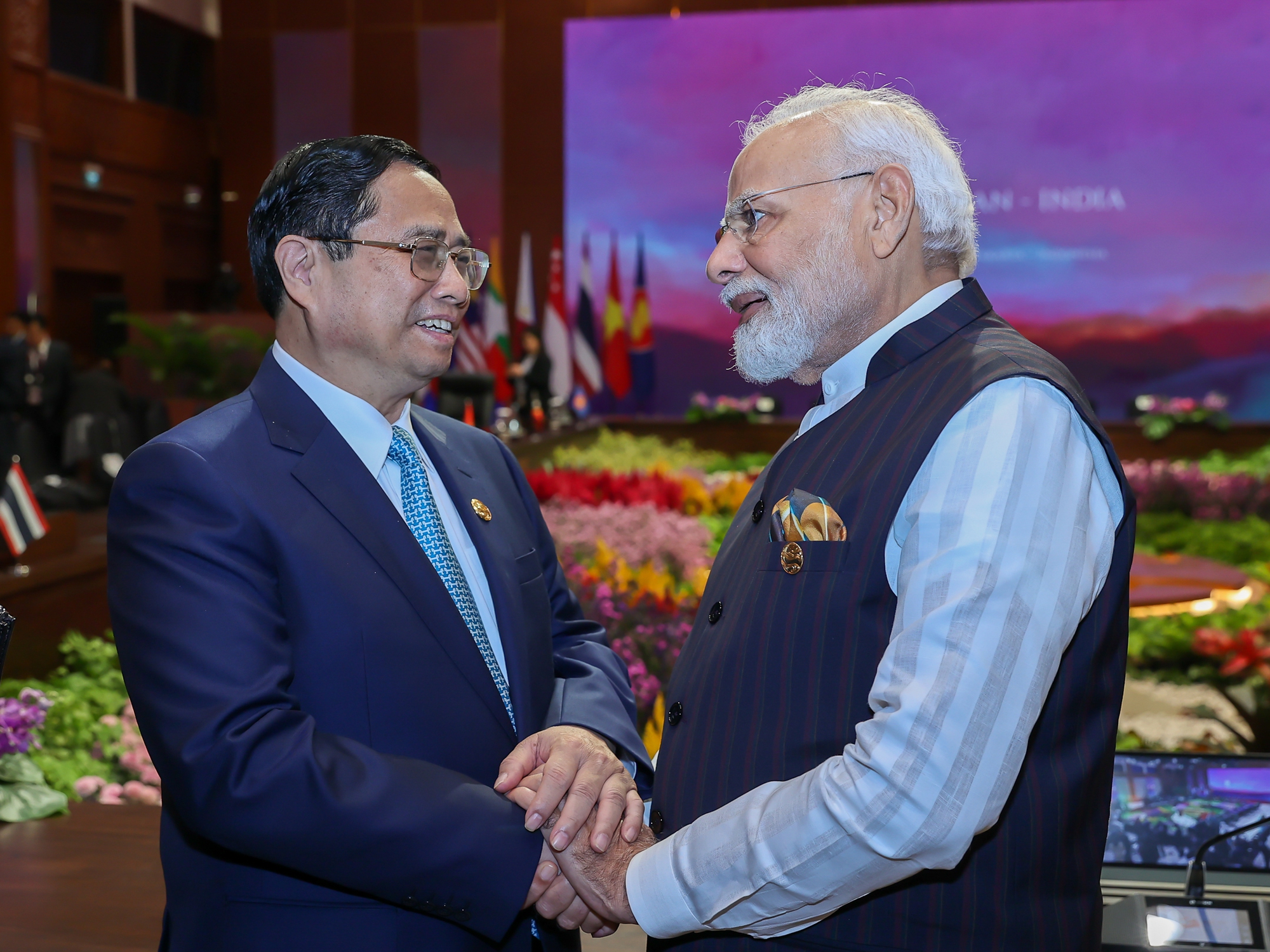
Prime Minister Pham Minh Chinh met with Indian Prime Minister Narendra Modi. The two leaders agreed to continue to coordinate and support each other at regional and international forums.
In the context of global economic difficulties and supply chain disruptions, the two leaders agreed to assign ministries, sectors and localities of the two countries to cooperate closely to complement the strengths of each economy, remove difficulties for businesses and promote two-way trade.
The two leaders also agreed to assign the aviation authorities of the two countries to study expanding licensing for each other's airlines to increase the frequency of direct flights between each other's major cities, in order to meet people's travel needs.
Prime Minister Narendra Modi acknowledged Prime Minister Pham Minh Chinh’s proposal to sign a memorandum of understanding on e-commerce and a bilateral economic cooperation agreement; limit the application of trade barriers to each other’s products; and affirmed to encourage large Indian corporations to increase investment in Vietnam.
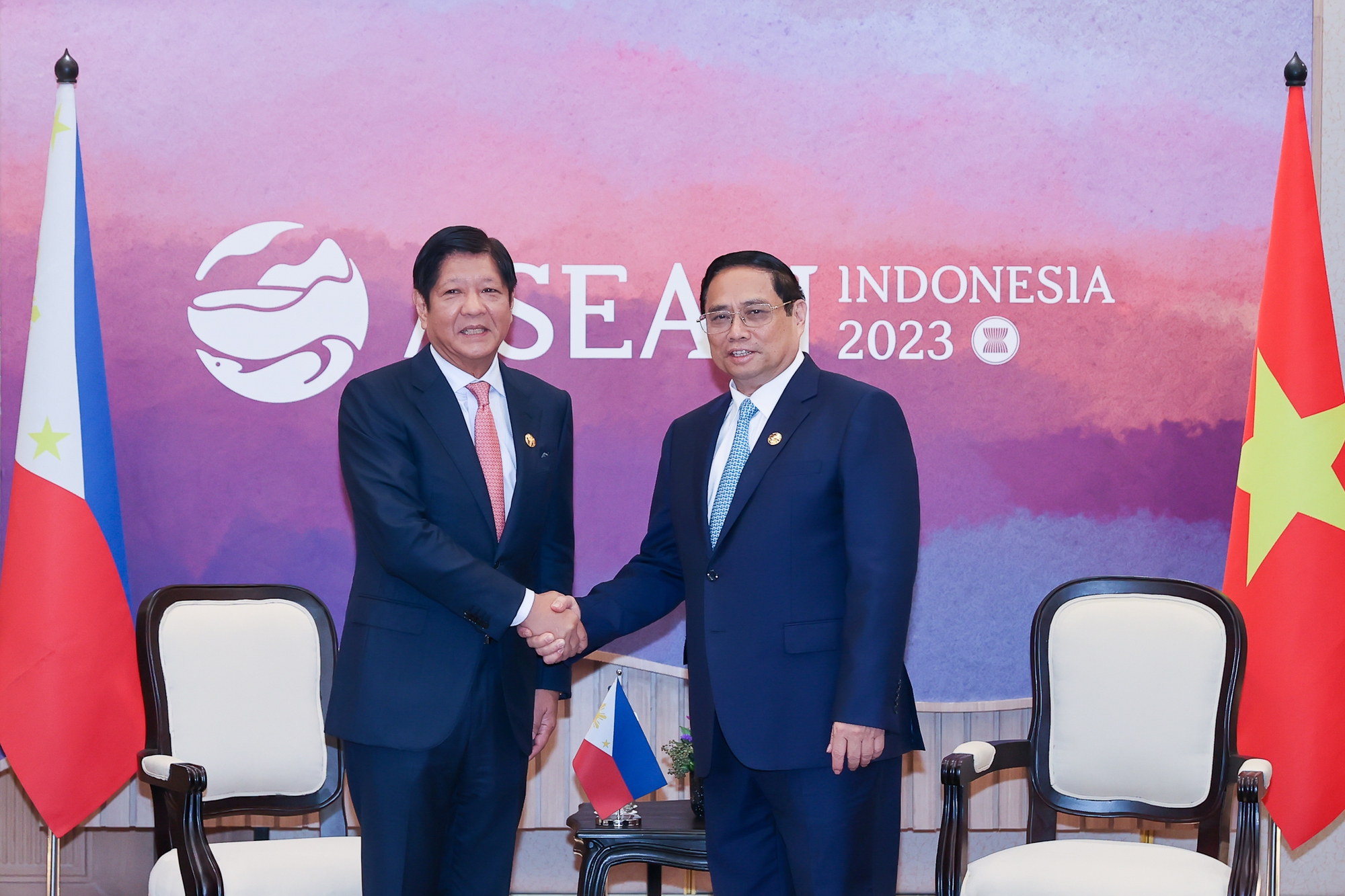
Prime Minister Pham Minh Chinh met with Philippine President Ferdinand Romualdez Marcos Jr.
Vietnam and the Philippines will soon discuss and sign an intergovernmental agreement on rice trade cooperation.
At the meeting with Philippine President Ferdinand Romualdez Marcos Jr., Prime Minister Pham Minh Chinh respectfully conveyed the warm regards of General Secretary Nguyen Phu Trong, President Vo Van Thuong and National Assembly Chairman Vuong Dinh Hue to President Marcos Jr. President Marcos affirmed that he will soon visit Vietnam and meet with Vietnamese leaders to strengthen bilateral relations.
Prime Minister Pham Minh Chinh and the Philippine President expressed their delight at the strong development of Vietnam-Philippines relations in all fields, affirmed the importance of the Vietnam-Philippines Strategic Partnership for peace, stability, cooperation and development in the region; and agreed to continue to coordinate and support each other in regional and international issues of mutual concern.
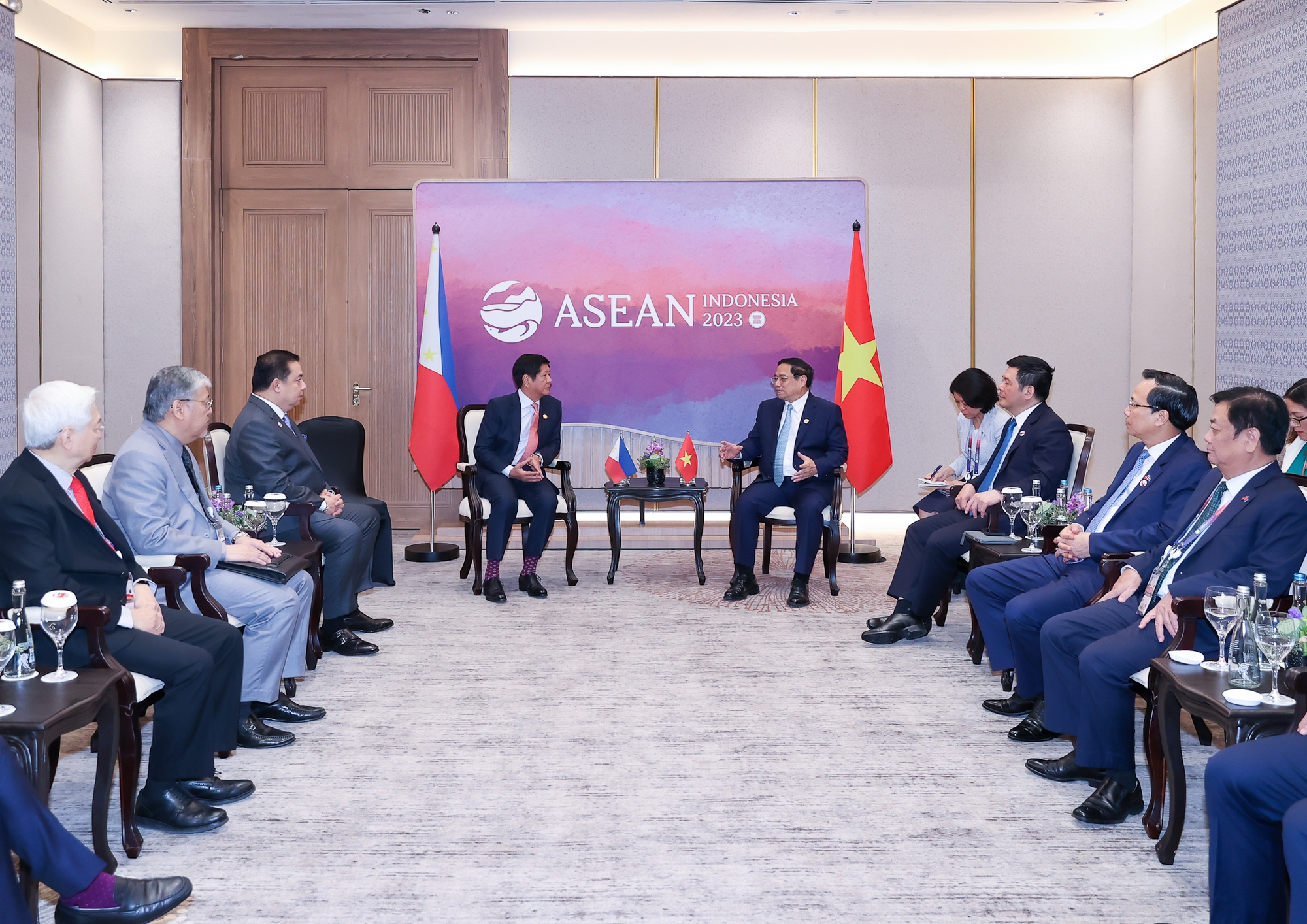
The Philippine President affirmed that he will support Vietnam's efforts in removing the European Commission's IUU yellow card.
The two leaders agreed that it is necessary to further promote the connectivity and complementarity of the two economies; focus on promoting areas of cooperation with great potential such as agriculture, aquaculture, oil and gas, etc.; research and expand cooperation in new areas such as digital economy, circular economy, green economy, innovation, etc.
The two leaders supported promoting cooperation in the field of human resource and labor training to support the development of the knowledge-based economy of the two countries. Along with that, they also agreed to soon discuss and sign an intergovernmental agreement on rice trade cooperation to jointly ensure food security goals in the face of complex fluctuations in the global food supply chain in recent times.
Source


![[Photo] Prime Minister Pham Minh Chinh chairs meeting on science and technology development](https://vphoto.vietnam.vn/thumb/1200x675/vietnam/resource/IMAGE/2025/5/17/ae80dd74c384439789b12013c738a045)


![[Photo] Readers line up to visit the photo exhibition and receive a special publication commemorating the 135th birthday of President Ho Chi Minh at Nhan Dan Newspaper](https://vphoto.vietnam.vn/thumb/1200x675/vietnam/resource/IMAGE/2025/5/17/85b3197fc6bd43e6a9ee4db15101005b)

![[Photo] More than 17,000 candidates participate in the 2025 SPT Competency Assessment Test of Hanoi National University of Education](https://vphoto.vietnam.vn/thumb/1200x675/vietnam/resource/IMAGE/2025/5/17/e538d9a1636c407cbb211b314e6303fd)


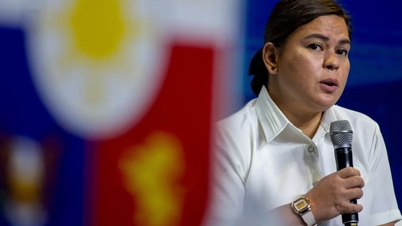
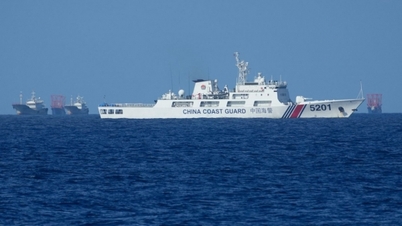

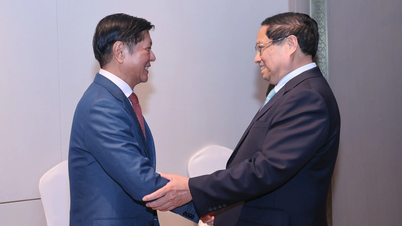

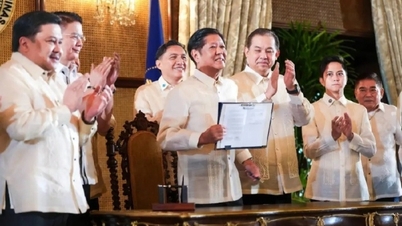
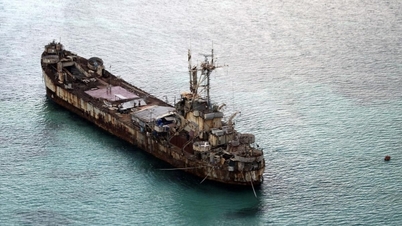
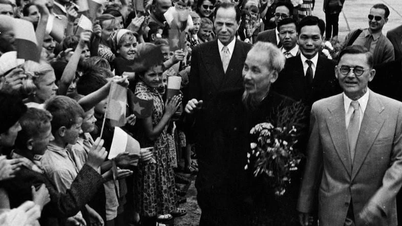

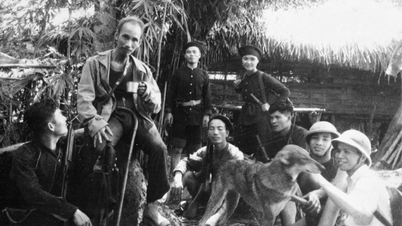
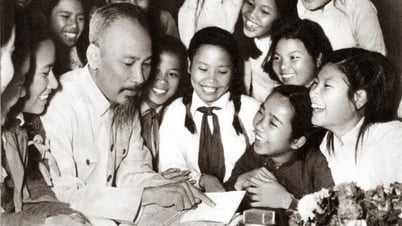

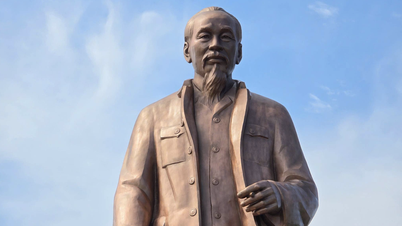
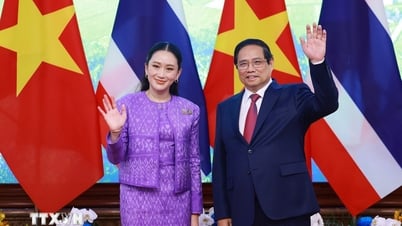
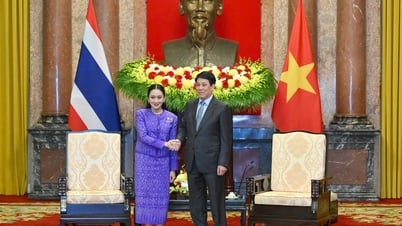











![[Photo] Nearly 3,000 students moved by stories about soldiers](https://vphoto.vietnam.vn/thumb/1200x675/vietnam/resource/IMAGE/2025/5/17/21da57c8241e42438b423eaa37215e0e)

















































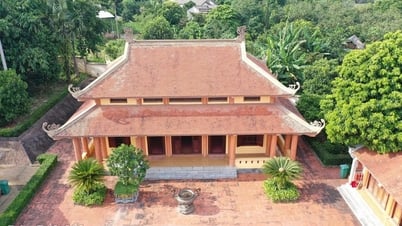

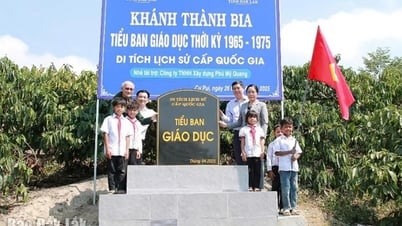
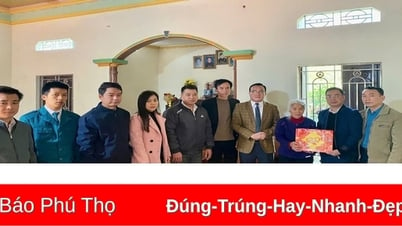

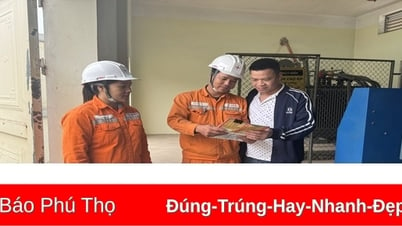
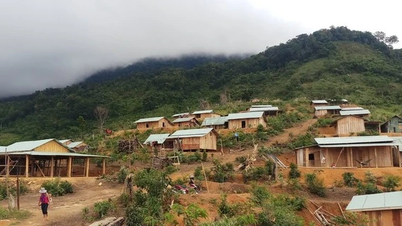

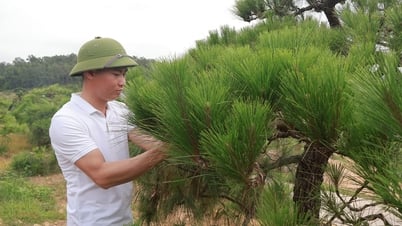











Comment (0)